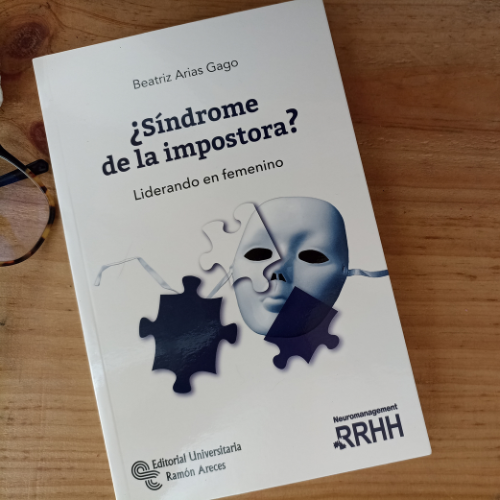How it began
When I first proposed to my company in 2019 to include this topic in the international women’s executive programme, I never thought that I would be asked to speak about it myself in the next programme.
It started to grow
After that, I received a request to replicate my talk in an internal group of female employees, then in another training programme for female talent, and one request after another was linked to reach a new female audience each time. From Germany to India, Poland, the United States, Italy, Spain, Greece, Finland, Portugal, Peru, Brazil… women colleagues from all over the world were moved when they heard about this label. It resonated very much with a familiar sense of loneliness and difficulty in being seen.

Visibilising the loss of talent
It was there that I found myself confronted with an unexpected reality: that of an all too widespread feeling of imposter syndrome among my female audience. So I decided to investigate the issue, as it has become a dangerous risk of talent invisibilisation, a tremendous loss for companies, especially damaging in times of profound transformation. As a result, after two years I published my book entitled “Impostor Syndrome? Leading in feminine”.

What do they think of my book?
Lucía Sallés Moreno
Biomedical research engineer in Accenture Song's Global R&D team.
It is a collection of everyday situations in which I have felt very identified, which has made me realise how important it is to talk about this problem, so that any woman can identify it and deal with it.
Teresa de Pedro Lucio
Physicist, expert in robotics and precursor of artificial intelligence programmes. VII Julio Peláez Award for Women Pioneers in Science.
If we women exercise our profession with solvency and naturalness, firmly occupying our space, we will achieve equality and, even more, complicity with men. And we will no longer feel or be made to feel like impostors.
Begoña Artiñano Rodríguez de Torres
Physicist and Director of the Environment Department of Ciemat
Valuing our abilities, whatever they may be, and being proud of them and even enjoying them, is still an unfinished business. We must overcome the need to justify them to men, to other women and essentially to ourselves.

The imposter syndrome is defined as the doubt and discrediting of one’s own skills and achievements, resulting in the invisibilisation of talent.
In the knowledge society in which we live, this means for organisations a liquid and silent loss of the capacity for innovation and representation of the diversity that accompanies it. For the professional who experiences this, typically in environments where she represents a minority, it is a constant brake on the development of her potential, along with a profound sense of loneliness.
This book is an invitation to dismantle some hitherto unchallenged biases and take off!







